Is Zuckerberg’s bromance with Trump smart or cynical — or both?
Scrapping fact-checkers will please the president-elect, but the Meta boss may just be appeasing him to protect himself.
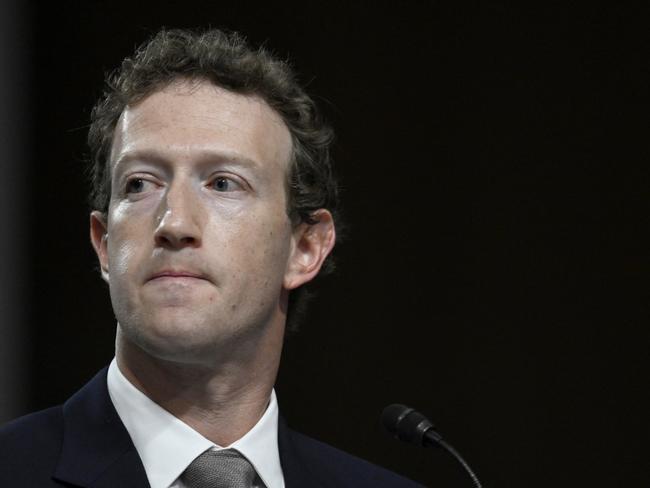
Two months before the US election, Donald Trump published a dollars 100 coffee-table book titled Save America. Among the candid photos cataloguing Trump’s first term as president, the former and future leader had a warning for Mark Zuckerberg, the social media mogul. “We are watching him closely,” Trump said. “And if he does anything illegal this time he will spend the rest of his life in prison.”
Fast-forward to last week. Zuckerberg, donning an oversized T-shirt, gold chain and dollars 900,000 wristwatch, posted a video to announce that he is dismantling much of the multibillion-dollar content moderation organisation he has spent the past eight years building at Meta. “We’ve reached a point where it’s just too many mistakes and too much censorship,” Zuckerberg said.
The policy overhaul is sweeping. Zuckerberg plans to end the use of third-party fact checkers, many of them news organisations such as Reuters or USA Today, who have “just been too politically biased and have destroyed more trust than they’ve created”. This will initially come into force only in America.
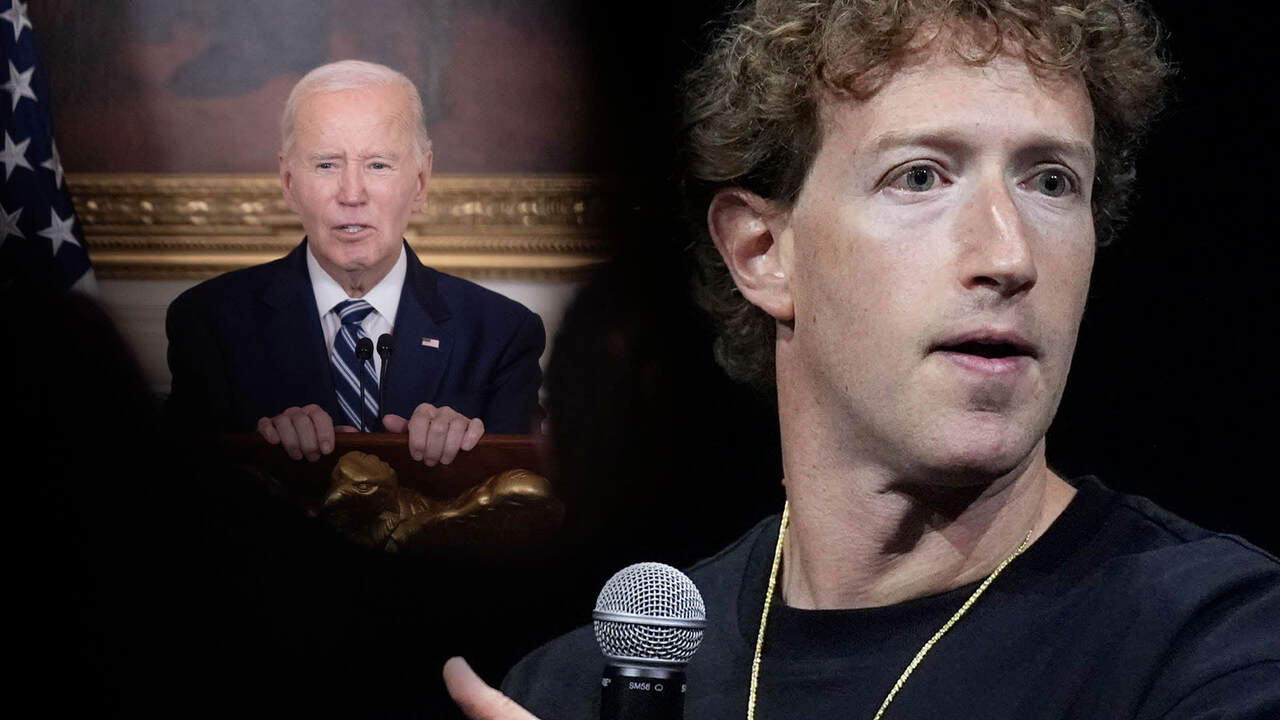
In place of the fact-checkers, Zuckerberg will install “Community Notes”, copying the informal, voluntary checking system implemented by Elon Musk at X. In addition to binning fact-checkers, the Meta boss also said he would tweak algorithms to once again promote political content, reversing a policy in place for some years that had sidelined political posts.
On Friday, Meta made further changes by revealing it was scrapping its Diversity, Equity and Inclusion hiring policies due to a “shifting legal and policy landscape”.
That same day, a three-hour podcast interview with Zuckerberg and Joe Rogan was released. In a sprawling and deeply revealing discussion, the scale of Zuckerberg’s frustration with President Biden’s administration became clear. He described how Biden administration officials sought to direct Meta during the Covid pandemic, demanding they remove content that wasn’t positive about vaccines. They would “call up the guys on our team and yell at them ... threatening repercussion”, he told Rogan. “And they pushed us super hard, to take down the things that were honestly were true. Anything that says that vaccines might have side-effects, you need to take down.”
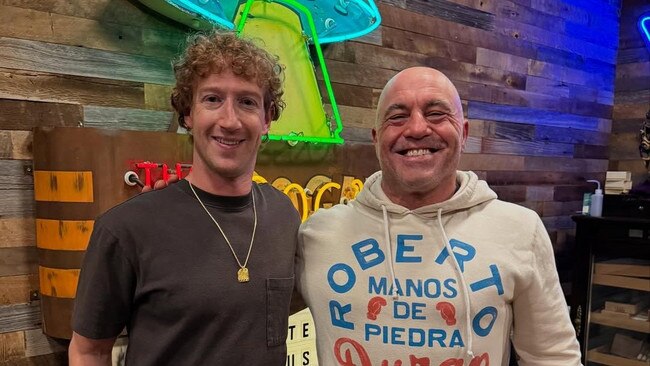
He also acknowledged that Facebook’s own content moderation had gone too far in recent years, describing it as “like something out of 1984”. Another small but culturally significant change was reported in the New York Times on Friday: facilities managers at Meta offices in America have been told to remove tampons from men’s bathrooms, which the company had provided for non-binary and transgender employees.
“It feels like we are in a new era,” Zuckerberg added in his video. A new era indeed. So what’s driving Zuckerberg’s remarkable shift? Is it a genuine change of heart or a cynical business play?
One interpretation of Zuckerberg’s embrace of the incoming president is rather simple. The most powerful man on the planet has threatened, more than once, to put him in jail. So he, along with Jeff Bezos, the founder of Amazon, Tim Cook, the head of Apple, OpenAI’s Sam Altman and others have approached the famously transactional incoming president in a way he understands. Each of the aforementioned either personally or through their companies handed cheques worth between dollars 1 million and dollars 2 million to Trump’s inaugural fund.
After Trump’s victory, Zuck flew to Mar-a-Lago in Florida to dine with him. He has also just appointed Dana White, the musclebound head of the Ultimate Fighting Championship and Trump ally, to his board of directors, and replaced his corporate affairs chief Sir Nick Clegg, the former liberal Democratic leader, with the Republican insider Joel Kaplan.
“Zuckerberg is appeasing the bully,” says Hany Farid, an information science professor at the University of California, Berkeley. “This is a simple power move. They know that if they pay Trump, if they do what he wants, he won’t hurt them.”
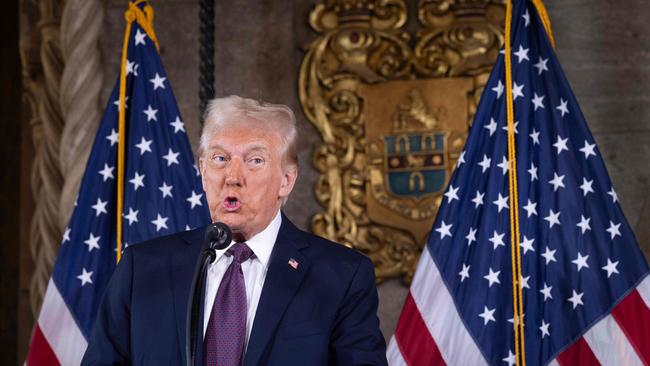
Of course, Zuckerberg is not the first businessman to ingratiate himself with an incoming president. What’s different about his gambit? The immense, global consequences that come along with it. Meta’s apps - Facebook, Instagram, Threads, Messenger and WhatsApp - are used by more than 3.3 billion people every day, or roughly three quarters of the internet-going public outside China (where Meta is banned).
By lowering the guardrails that govern what is allowed, dialling back content filters and reinjecting politics into social media feeds, the entire complexion of the web will change. Conservatives in America, who have long viewed Meta’s fact-checkers as liberal thought police, are thrilled by the decision.
“All of the changes that were announced are salutary, irrespective of the impetus,” said the conservative columnist Charles Cooke last week. “These are desirable and good changes that ought to have been the policy of Meta for a long time. This is how private companies ought to operate in the United States, which is a free country. ”
There has also been a storm of criticism. Arturo Bejar, a senior safety executive at Meta turned whistleblower, called Zuckerberg’s announcement “shameful”. He added: “What the changes really are saying is, ‘We do not care to provide a safe environment.’”
Trump, on the other hand, praised Zuckerberg’s volte-face. The company, he said in a press conference, had “come a long way”. Did he think it was in response to his threats? “Probably.”
Another interpretation of Zuckerberg’s move is that content moderation hasn’t worked very well anyway. Conspiracies still circulate freely on Facebook.
What many observers found surprising, however, was that the answer Zuckerberg came up with was in effect to capitulate. “The reality is that this is a trade-off,” Zuckerberg explained. “It means we’re going to catch less bad stuff, but we’ll also reduce the number of innocent people’s posts and accounts that we accidentally take down.”
Zuckerberg’s path to this decision has been a rocky one. When Trump beat Hillary Clinton in 2016, there was a fierce backlash against Facebook, which was viewed as having been a platform for widespread misinformation and Russian election meddling. Zuckerberg initially dismissed the idea Facebook had swung the election as “pretty crazy”, but soon embarked upon what would become the world’s largest and most comprehensive content moderation operation.
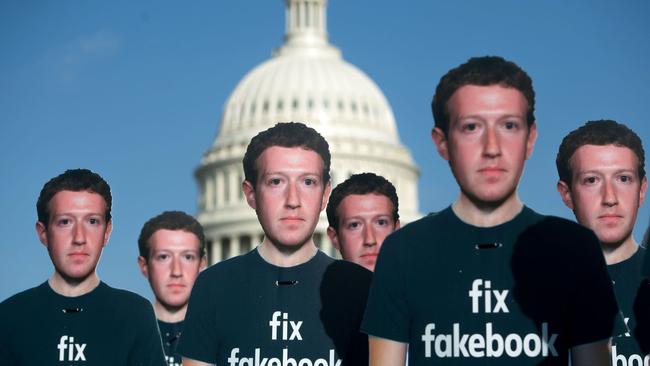
Instead of plaudits, however, Zuckerberg received more scorn. Republicans claimed the new system was overpolicing views from the right. Democrats blamed him for democratic decay. The misinformation wars peaked during Covid, when Meta was bashed for its often heavy-handed treatment of content, such as banning posts claiming the virus might have been man-made.
Somewhere along the way, Zuckerberg appears to have come to the conclusion that he would satisfy no one. Steven Levy, author of Facebook: the Inside Story, published in 2020, said: “After the 2016 election, as all these fingers got pointed at him, and I have to say, he was actually pretty thoughtful about it. At least he mouthed the words that he was remorseful about the toxic things that were happening on his platform. Probably the biggest shift in Zuckerberg now is that he’s washing his hands of the criticism. He knows he’s going to get slammed. He doesn’t care.”
Part of this attitude will have developed with age and scar tissue built up through countless congressional hearings and relentless criticism. Zuckerberg is not the pasty faced coder of yore who used to get so nervous before interviews that he had his PR handlers blow-dry his armpits. Last year he turned 40. His soaring net worth (dollars 216 billion) rivals the GDP of Greece, and last year he took delivery of a dollars 300 million, 387-foot megayacht. He has become an avid practitioner of mixed martial arts, and the closely cropped Julius Caesar hairdo he sported for years has been replaced by curls.
Beyond the outward bro-ification, however, Zuckerberg remains keenly focused on power and on winning. This is a man who derived the names of his three children - Maxima, Aurelia and August - from Roman emperors, and commissioned a 7ft copper statue of his wife, Priscilla Chan.

For months, Zuckerberg has watched as his rival Musk has benefited from cosying up to the incoming president. Musk put dollars 270 million of his own cash into Trump’s campaign, and has since watched his net worth balloon by more than dollars 170 billion amid expectations that his companies will benefit from his status as “first buddy”.
Now Zuckerberg has positioned himself as a friendly alternative. Of the changes Zuckerberg announced last week, it was the most subtle that industry experts found the most worrying. Zuckerberg said he would “dial back” automated content filters that he said “overenforce” Meta’s rules. What does this mean? In December, Meta took down “millions” of posts every day. These together accounted for less than 1 per cent of total posts. Meta reckons that of those millions of removals, 10-20 per cent were “mistakes”.
Zuckerberg’s solution? To remove much of the screening so that posts make it through, while changing its approach from culling content on sensitive issues such as immigration and gender to only removing posts after someone has complained. (The blocking of “high-severity” and illegal posts such as fraud, child sexual exploitation and terrorism will remain unchanged.) These changes will apply globally, not just in America.
For Bejar this is tantamount to inviting in a deluge of bullying and other harm. Under the new rules people can, for example, call for homosexuals to be excluded from certain jobs or refer to certain ethnic groups as “filth”.
“It’s going to be a firehose of this kind of content that’s seeping into kids’ heads, that desensitises, that radicalises,” Bejar said. “It was bad before they announced this, and this is just going to make it so much worse.”
Zuckerberg’s is not out of the woods. In April, a suit brought by the Federal Trade Commission seeking to break up Meta goes to trial. The company is also preparing for a case brought by more than 30 states over allegations that it fuelled the teen mental health crisis by addicting young people to its platforms, which it strongly denies.
Might Zuckerberg’s bromance with Trump pay dividends in the trials to come? Perhaps. What’s certain is that, whether we want it or not, billions of us are along for the ride.
The Times

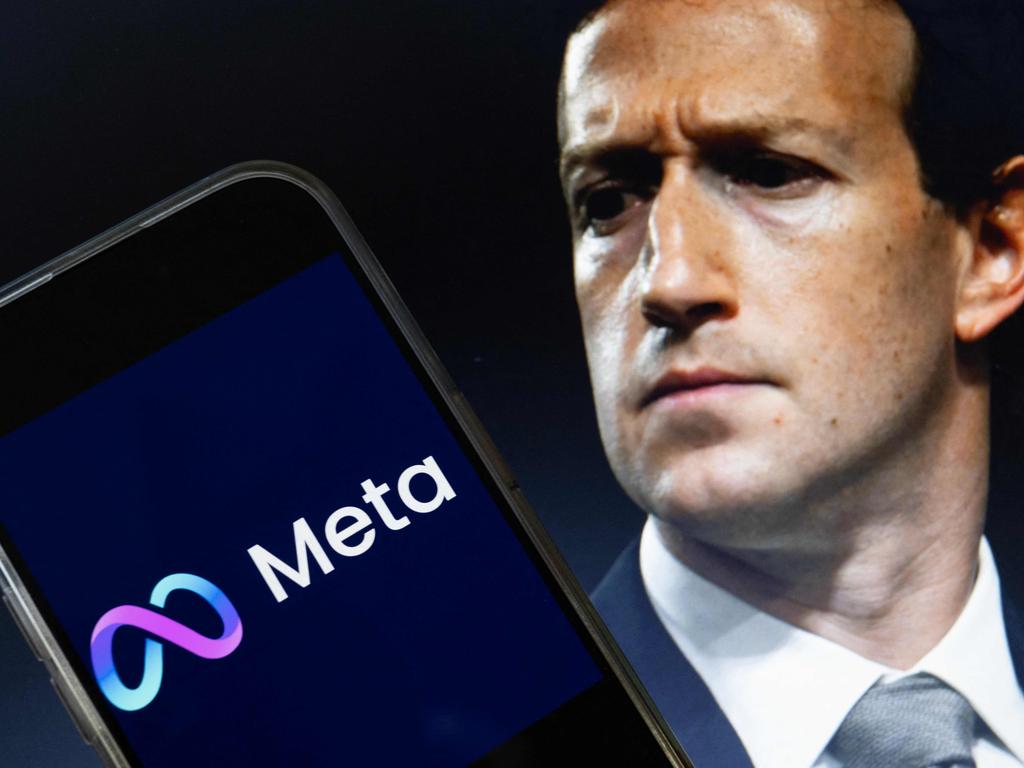
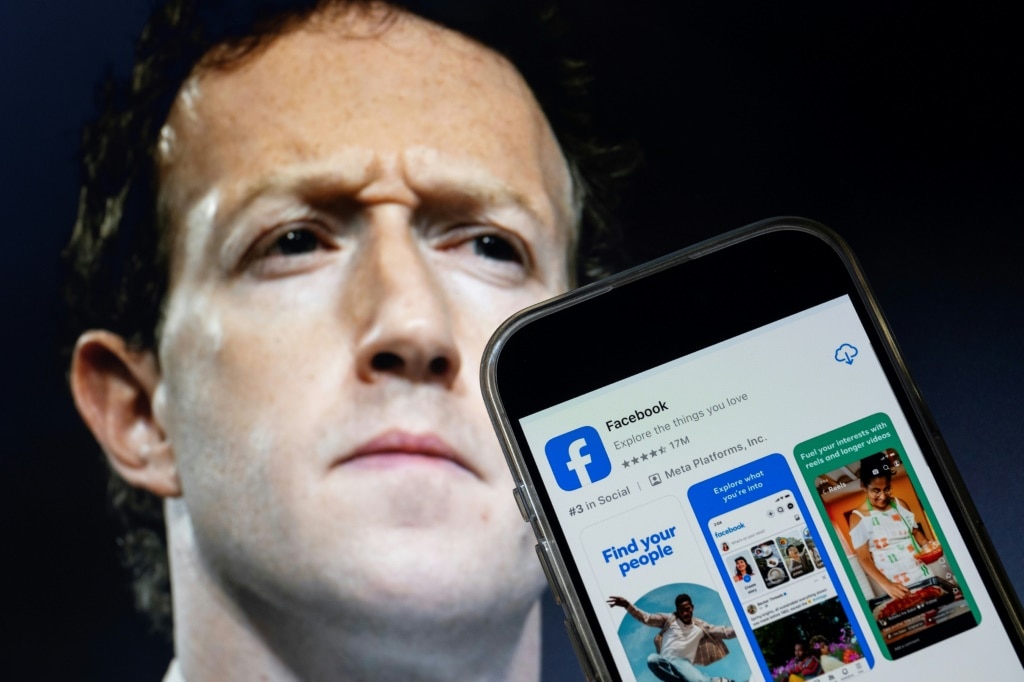
To join the conversation, please log in. Don't have an account? Register
Join the conversation, you are commenting as Logout